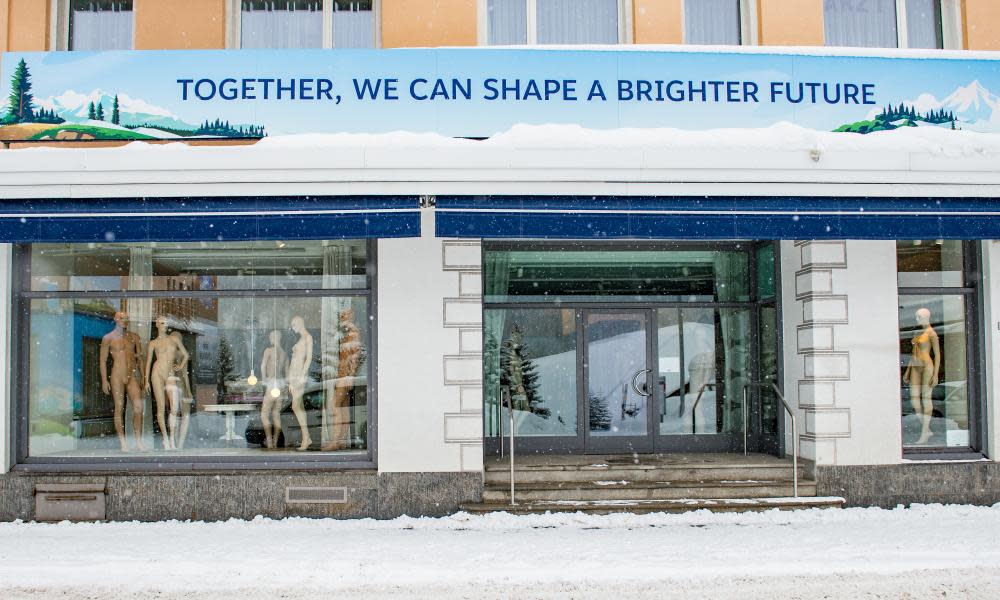Young people warned: economic focus on short-term growth is failing you

The global obsession with short-term growth has led to historically high levels of income inequality and a growing gap between old and young people, according to a damning new report by the World Economic Forum (WEF) on the eve of its annual Davos summit.
In a surprisingly stark warning about the impact of short-termism, the WEF calls for a new way of assessing national accomplishment beyond gross domestic product (GDP), a measure it says fuels increasing income and wealth inequality.
Based on an analysis of its annual Inclusive Development Index (IDI) that focused on 11 measures of economic progress (in addition to GDP) for 29 developed countries, the WEF report warns that both rich and poor countries are failing to protect future generations – highlighting high levels of public debt and economic drivers that depend on a high rate of carbon dioxide emissions as two key factors.
Even in countries with the strongest economic growth in terms of GDP, such as the US, the report found evidence of “inclusion” (where increased wealth and opportunity is being shared more widely) to be lacking.
Richard Samans, managing director and the head of global agenda at the WEF, told the Guardian that prioritising economic growth over social equity “has led to historically high levels of wealth and income inequality. Most citizens don’t really judge the economy on whether GDP is going up or down.”
The warning comes as Larry Fink, chief executive of BlackRock, the world’s largest investment firm, said all companies must “make a positive contribution to society”.
Despite a combined 3% increase in growth over the past five years, the 29 advanced economies included in the study have on average flatlined in terms of inclusion, which is measured using median household income, poverty, and wealth and income inequality.
Over the same period, just 12 of the 29 advanced economies were rated successful in reducing poverty, while only eight saw a decrease in income inequality. According to Samans, more countries – and the media – should adopt the IDI as a way of measuring economic success in order to improve the long-term picture.
“Policymakers need a new dashboard focused more specifically on this purpose,” he told the Guardian. “It could help them to pay greater attention to structural and institutional aspects of economic policy that are important for diffusing prosperity and opportunity – and making sure these are preserved for younger and future generations.”
Over the past five years, despite a growing world economy, social inclusion has fallen or been unchanged in 20 of 29 advanced economies, and intergenerational equity has deteriorated in 56 of 74 emerging economies.
“Youth un- and under-employment is a huge problem in many sectors, yet doesn’t really receive the kind of attention and debate it should,” Samans said.
Inequality measures were stark in some of the most advanced economies in the world, including the US, UK and France. Out of 29 countries, the US is 10th in growth and development, but 28th and 26th respectively in the inclusion index and intergenerational equity.
The gap in the UK is less stark, although it still measures 16th for its growth and development, and 20th and 23rd out of 29 for its inclusivity and the gap between young and old.
France does badly in all measures but inclusivity. With relatively low growth and development, it also ranks 24th overall in terms of leaving the next generation with little to show for its success.
The pattern is repeated when it comes to evidence that the world’s biggest economies are spending today with little concern for future generations. When measured by adjusted net savings, carbon intensity of GDP, public debt and the dependency ratio (the so-called Intergenerational Equity and Sustainability pillar), 22 out of 29 recorded either a mediocre or outright poor performance.
If you have experiences relating to this article that you’d like to share, please email us at inequality.project@theguardian.com

 Yahoo News
Yahoo News 
